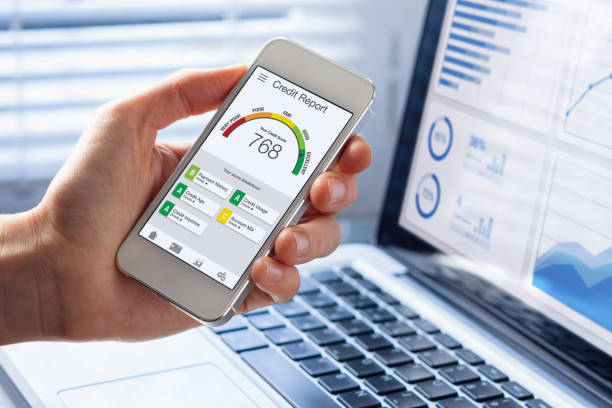The carefree days of student life often come with a constant financial companion – the student overdraft. It could be a lifeline for unexpected expenses or a safety net for that weekend getaway. But, while it offers immediate financial breathing room, the question remains – does student overdraft affect your credit score?
Financially prudent students should understand the mechanics of credit scores and how responsible overdraft management can contribute positively to one’s financial standing. You should also understand the potential pitfalls to avoid, such as exceeding your overdraft limit or constantly relying on this credit buffer.
In this comprehensive guide, we will explore the relationship between student overdrafts and credit scores and provide you with valuable insights to help you make informed financial decisions.
Table of contents
- What is a Student Overdraft?
- Will my student overdraft show up on my credit report?
- Does Student Overdraft Affect Your Credit Score?
- Can having a student overdraft affect my ability to get a loan in the future?
- How long does a student overdraft stay on my credit report?
- Should I avoid getting a student overdraft altogether to protect my credit score?
- How Can I Manage Your Student Overdraft Responsibly?
- Frequently Asked Questions
- Conclusion
- References
- Recommendations
What is a Student Overdraft?
Student overdrafts are a financial lifeline for many college students. They are essentially a line of credit provided by banks to students with a checking account.
This credit allows students to withdraw more money than they actually have in their account, up to a certain predetermined limit.
It’s like a safety net for times when unexpected expenses arise.
Read Also: 45 Gorgeous Dorm Room Ideas You’ll Want to Copy
Will my student overdraft show up on my credit report?
Yes, your student overdraft can potentially show up on your credit report. While it depends on the specific policies of your bank and credit reporting agencies, it is important to be aware that any negative financial activity, including overdrafts, has the potential to impact your credit history.
If you have a student overdraft and consistently fail to repay the amount owed or if it goes into collections, it is more likely to appear on your credit report.
This could have a negative effect on your credit score and make it more challenging for you to obtain credit or loans in the future.
To avoid this situation, it’s crucial to manage your finances responsibly and ensure that you are able to cover any overdrafts promptly.
If you find yourself struggling with an overdraft, reach out to your bank as soon as possible to discuss repayment options or potential solutions they may offer.
Remember, being proactive about managing your finances can help protect your creditworthiness in the long run.
Read Also: Top 30 Colleges Not Requiring Covid Vaccine For Fall & Winter |
Does Student Overdraft Affect Your Credit Score?
Yes, student overdrafts can impact your credit score, but it largely depends on how you manage them.
Positive Impact on Credit Score
If you use your student overdraft responsibly and repay any overdraft balance promptly, it can have a positive impact on your credit score. Timely repayments demonstrate your ability to handle credit responsibly, which is a crucial factor in credit scoring.
Negative Impact on Credit Score
Conversely, if you consistently exceed your overdraft limit or fail to repay the overdraft, it can harm your credit score. Late payments, defaults, or excessive overdraft usage can be reported to credit bureaus, affecting your creditworthiness.
Can having a student overdraft affect my ability to get a loan in the future?
Having a student overdraft can potentially affect your ability to get a loan in the future, but it’s not necessarily a deal-breaker. Lenders typically consider various factors when assessing loan applications, and your financial history is one of them.
If you have a history of consistently going into overdraft or struggling with managing your finances, it may raise concerns for lenders.
However, if you have taken steps to rectify the situation and demonstrate responsible financial behavior since then, it can help mitigate any negative impact.
Building a positive credit history by making timely payments on other debts, such as credit cards or utility bills, can also improve your chances of getting approved for loans in the future.
It’s important to be mindful of your financial habits and take steps to manage them responsibly. Being proactive about improving your financial situation will not only increase your chances of getting approved for loans but also set you up for long-term financial success.
Read Also: Should College Be Free: YES/NO? Pros And Cons
How long does a student overdraft stay on my credit report?
A student overdraft can stay on your credit report for a certain period, typically around six years. However, it’s important to note that the impact of an overdraft on your credit score may vary depending on how you handle it.
If you manage to repay the overdraft promptly and maintain good financial habits afterward, it shouldn’t have a significant negative impact on your credit score in the long run.
To mitigate any potential negative effects, I would recommend keeping track of your finances and avoiding excessive borrowing whenever possible.
It’s also worth considering speaking with your bank or financial institution to discuss any concerns you may have regarding your overdraft and its impact on your credit report.
Remember, building good credit takes time and responsible financial behavior, so focus on making positive choices moving forward.
Read Also: What Happens During College Orientation? Guiding Tips
Should I avoid getting a student overdraft altogether to protect my credit score?
It’s great that you’re thinking about your credit score and being cautious with your finances as a student.
While it’s true that getting a student overdraft can have an impact on your credit score, it doesn’t necessarily mean you should avoid it altogether.
Having a student overdraft can actually be quite beneficial if used responsibly. It can provide you with some extra financial flexibility during your studies, helping you cover unexpected expenses or manage cash flow.
Just make sure to only use it when absolutely necessary and try to pay it off as soon as possible to minimize any negative impact on your credit score.
Remember, building a good credit history is important for your future financial endeavors, so it’s worth considering all the factors before making a decision.
If you’re confident in your ability to manage the overdraft responsibly and make timely repayments, then it could be a useful tool for you.
However, if you think it might tempt you into overspending or struggling with repayments, then perhaps avoiding it would be the better option for now.
Read Also: What to Wear to a College in the USA: Dress Code Tips & Ideas
How Can I Manage Your Student Overdraft Responsibly?
To ensure that your student overdraft doesn’t adversely affect your credit score, follow these tips:
Monitor Your Balance: Keep a close eye on your account balance to avoid overdrawing unnecessarily.
Repay Promptly: Make it a priority to repay any overdraft as soon as possible.
Set Alerts: Set up account alerts to receive notifications when your balance is low.
Budget Wisely: Create a budget to manage your finances effectively and prevent overdrafts.
Frequently Asked Questions
It might be challenging, but some banks offer student overdrafts with lenient credit requirements.
Not always. Some banks do report overdrafts to credit bureaus, while others may not.
Yes, but it typically requires approval from your bank and may be based on your financial situation.
You can check your credit score for free through various online services or by requesting a report from a credit bureau.
Contact your bank immediately to discuss your situation and explore repayment options.
Yes, you can consider options like student loans, part-time jobs, or scholarships to help cover your expenses.
Conclusion
Student overdrafts can indeed affect your credit score, but the impact is largely determined by how responsibly you manage them.
By monitoring your account, repaying overdrafts promptly, and budgeting wisely, you can ensure that your credit score remains healthy while still enjoying the benefits of a student overdraft.
References
- paveapp.com – Does a Student Overdraft Affect Your Credit Score?
- equifax.co.uk – What is a student overdraft?
- experian.co.uk – How does an overdraft affect your credit score?






